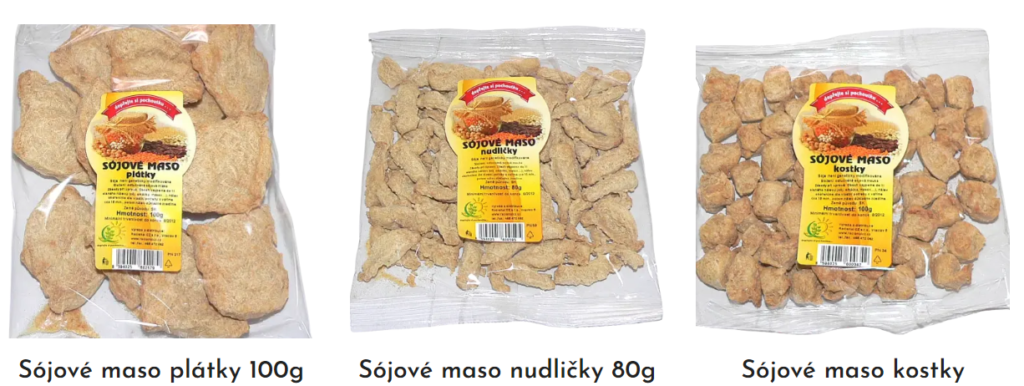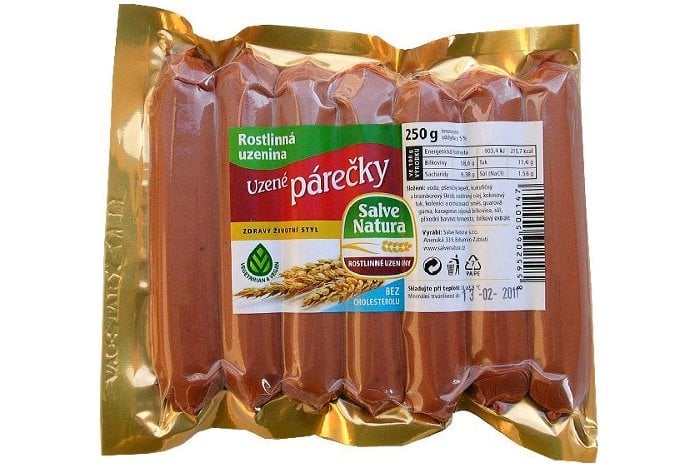The Agrarian Chamber of the Czech Republic supports the preservation of traditional names for meat, meat and dairy products. The reasons are consumer orientation, clear rules for producers and a guarantee of composition and nutritional parameters. The required characteristics of meat products are defined by the Ministry of Agriculture in its amendment to the Decree on the Food Act for meat, meat products, fish and eggs, which responds to developments and trends in the processing industry. The decree does not prohibit vegetarian and vegan alternatives of plant origin.
"There is a plethora of products on the market today and it is sometimes confusing to know the difference between a meatball, sausage or burger made from meat and its vegetable imitation. Especially when their name, texture, colour and packaging are very similar. However, the fundamental difference is in the composition and nutritional value. Therefore, meat products and their plant-based alternatives should be clearly distinguished even by name,' says the President of the Agrarian Chamber of the Czech Republic Jan Doležal.

The debate on product labelling has been going on at the national level and within the European Union for a long time and there are different and even contradictory opinions on this topic. On the one hand, the aim is to protect standards for the historically developed names of meat and meat products, while on the other hand, some support the use of these common names for products that have nothing to do with animal origin. This view is particularly held by vegetarian and vegan organisations and other groups who want to normalise alternative diets for the rest of society and promote their view of what is right and wrong in nutrition. The lobby of producers of plant-based alternatives to meat products is also influential. At the same time, it should be said that, according to an Ipsos survey from June 2020, three per cent of vegetarians and just one per cent of vegans are in the Czech Republic.
"From my point of view, this is basically a misuse of the names of animal species, anatomical parts and products or semi-finished products derived from them, which has no rational justification. Not to mention the very fundamental point, which is the completely different nutritional value of plant products compared with animal originals. The consumer simply cannot be induced to unwittingly and in good faith substitute meat for wheat, pea or soya protein dyed red in a pancake imitating a meatball. If these alternative products are to succeed in the marketplace, it cannot be at the cost of misleading advertising,' adds the President of the Agrarian Chamber of the Czech Republic.

Often these are also foods that aim to mimic the sensory experience and macronutrient content of meat as much as possible by using vegetable proteins, vegetable fats and various additives, colourings, with the addition of various vitamins, minerals, but also stabilisers and preservatives. It is thus an unnatural mix and imitation of foods of meat origin. These imitations give the impression of nutritional value and healthy eating. However, many nutritional advisers talk about the fact that highly processed foods are not good for human health. They cannot meet all the body's needs and supply of beneficial substances.
This is a completely different form of market distortion than the one that occurred in the Czech Republic in the 1990s after the abolition of state standards for meat products. At that time, pressure on prices led to a significant decline in the quality of meat products and it took years to put the market situation right and the quality of products stabilised, which is still the case today and the current amendment to the above-mentioned decree is intended to contribute to this. Slovakia, for example, has already defined certain names in the law as 'párok', i.e. sausage. A precedent at EU level can also be set by the decision of the European Court of Justice which, in France, strengthened the role of traditional names for meat and meat products as opposed to their vegetable and other imitations, and also established the conditions under which other EU countries may use them. Similarly, names of meat alternatives such as tofu, tempeh or seitan could be protected by law.

The Agrarian Chamber of the Czech Republic respects the right of every person to decide what dietary habits they choose. However, it rejects the aggressive campaigns of some organisations that do not represent the opinion of the majority of the public. "We agree and support responsible corporate behaviour towards the environment, society and risk management, but we are also fully aware that in agriculture, animal husbandry with all its benefits and overlaps is the traditional basis of all agrarian production. We refuse to succumb to green pressures and will not allow ourselves to be blacklisted by livestock farmers, meat processors and the general consuming public who consume meat and meat products." Doležal concludes.
AK ČR/ gnews - RoZ
PHOTO - pixabay, vitalia.cz, racional.cz



